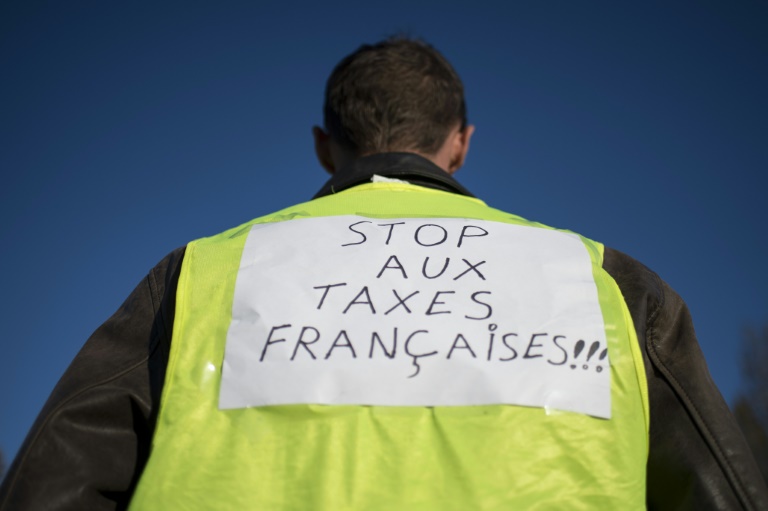A Bona Fide Tax Revolt in France
Over the weekend, nearly 300,000 French citizens took to the streets of major cities to block some 2000 roadways and intersections clad in yellow safety vests (gilets jauntes). French police and security personnel used tear gas and water hoses, largely unsuccessfully, to disperse the angry masses.
Media coverage in the United States was initially scant. European news agencies, however, reported that the riots were a response to a recently-imposed carbon fuel tax. But two features of the gilets jaunes riots are distinct and require emphasis.
The Carbon Fuel Tax is Not the Whole Story
The initial impetus for individuals taking to the streets in yellow vests was to protest the rising fuel costs. But the protests quickly escalated into a more general protest regarding taxation in general. Interviews confirm that a broader revolt is at work.
The government imposed a new tax on pensions earlier this year, putting sizable economic pressure on the elderly. There are rumblings about increasing estate taxes. And additionally – essentially unmentioned in virtually all of the coverage – the French government has announced that it will deduct income tax directly from payrolls on a monthly basis starting in January of 2019. This has further riled the population.
For decades, French citizens have paid either the highest or among the highest taxes in the EU; many were already struggling to make ends meet even before the government imposed a deluge of new taxes over the last year.
References to theft are ubiquitous in the slogans and signs of the gilet jauntes. “Death to taxes,” read the signs. Far from a fringe civil disturbance, France is in the throes of nothing less than a time-honored, bona fide tax revolt.
The Resistance is Apolitical
Additionally, and unlike the union-led riots of last year and (most other social uprisings of the last decade or so), this uprising is spontaneous. There is no leader, no organization backing, nor political bias: the composition of the nearly 300,000 tax protestors spans a diverse ideological spectrum. And while their attire stems from a 2008 law requiring that French motorists carry yellow safety vests in their automobiles, for some participants they simultaneously capture an apolitical unity of purpose.
The Macron government attempted to shame the protestors. There were and a handful of feeble attempts to dismiss hundreds of thousands of French citizens taking to the streets as the act of a few “right-wing agitators. In fact, polls indicate that trust in government has never been lower.
The gulf between the government’s rhetoric and actions is beginning to widen. As of this writing, the French government has announced, following a cabinet meeting earlier today, that it has canceled plans to introduce urban tolls.
The Ball is in Macron’s Court
France – more appropriately, the French government – has been fawned over in many Western media outlets for “taking the lead” in climate change. In France (as in most of the EU) the public sector outearns the private sector, which undoubtedly aids in the swallowing of high-minded, utopian projects en route to some fabled state of “sustainability.” For the average citizen, those costs impose struggles which are real, daily and dire. The French people have reached a breaking point; fiscal shell games and/or monetary hijinks will only serve to delay the reckoning for another day.
The idea of moving an entire nation away from fossil fuels, while providing universal welfare, might sound humane, compassionate, and visionary in the abstract. Then economic reality intervenes. Just how much coercion – how much pillaging of the population – is required to make this dream a reality? The French public is discovering this now. And it’s deeply unpopular.
From the point of view of the regular person, personal and domestic sustainability will always take precedence over sweet-sounding government programs. Politicians and climate change activists who blithely maintain that the pool of public support for lofty political projects is both bottomless and selfless are either obtuse or tacitly agitating for tyranny.
Even in France, the land Americans have been taught to believe is filled with obsequious celebrators of democratic socialism, people don’t appreciate having their personal wealth looting to serve ruling-class plans.











